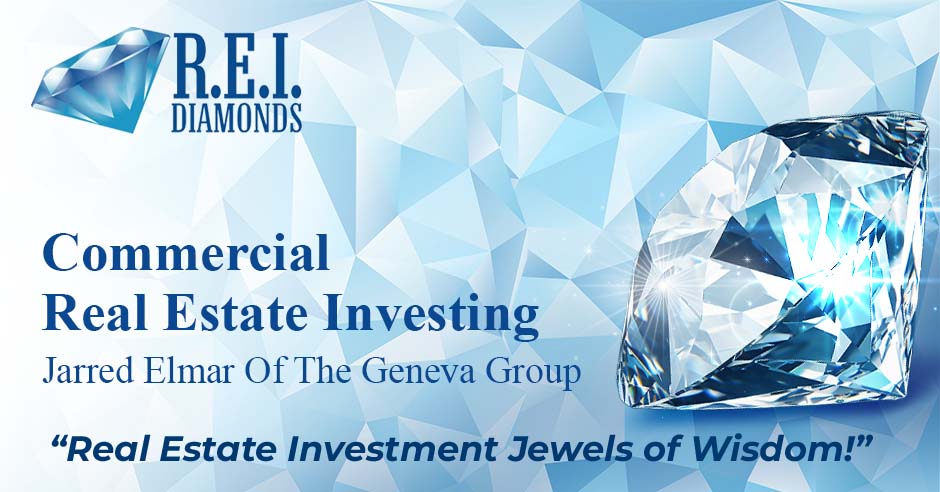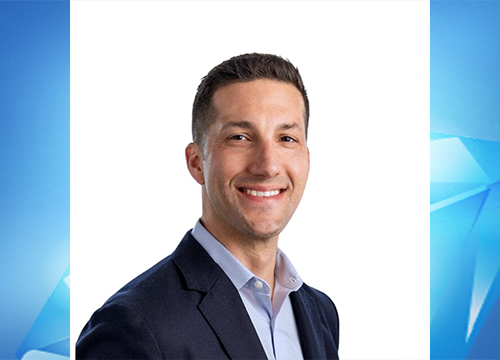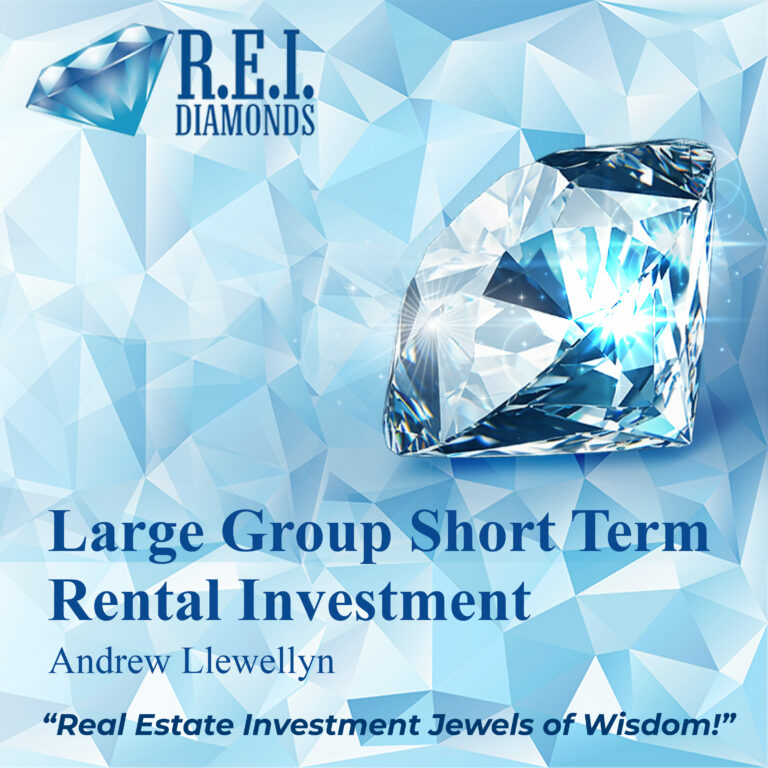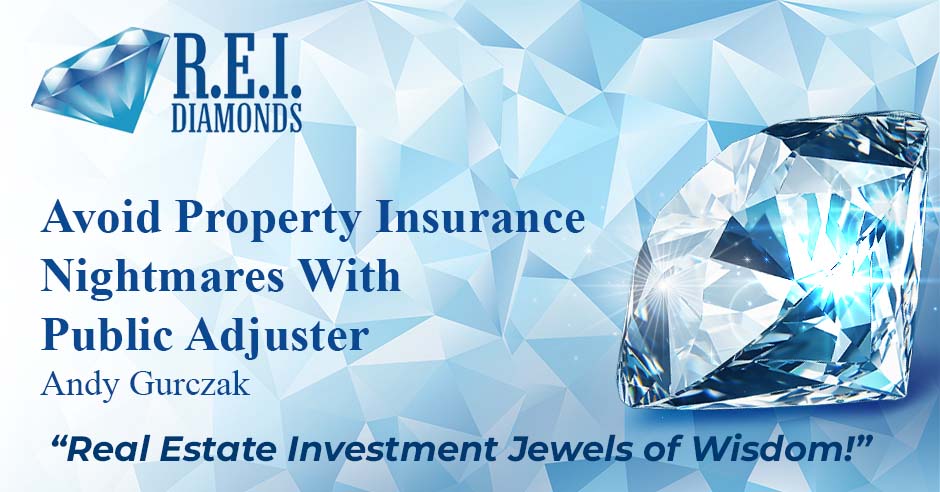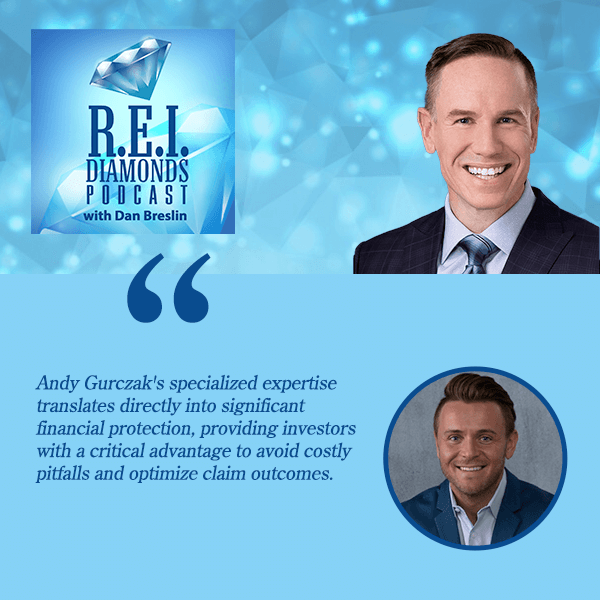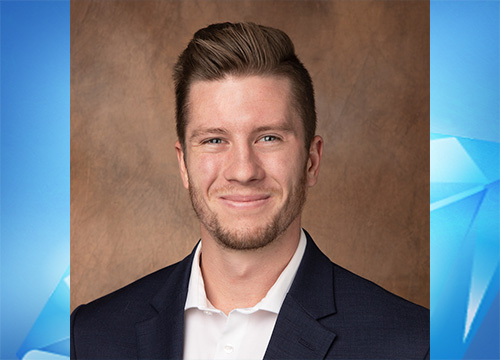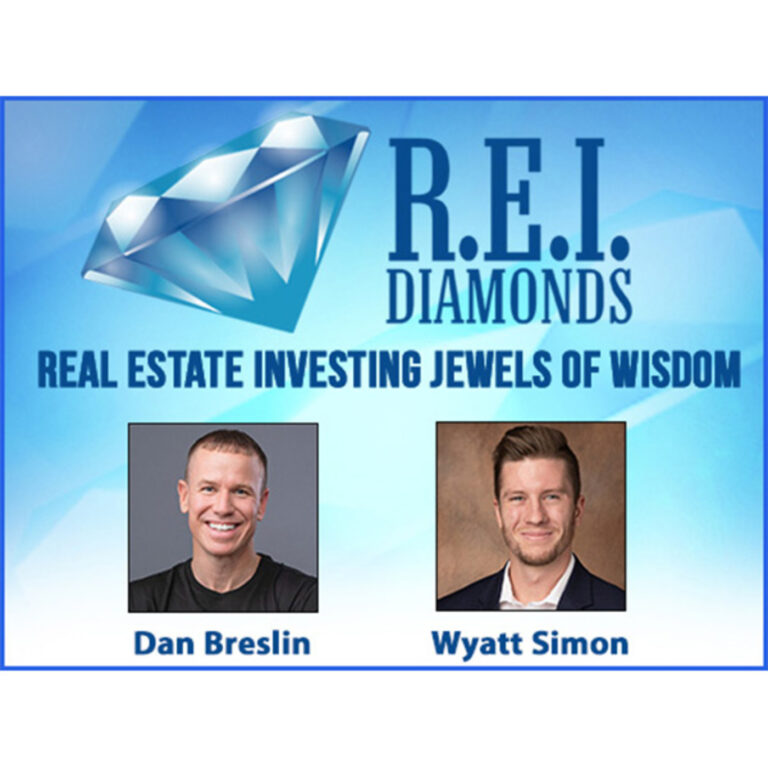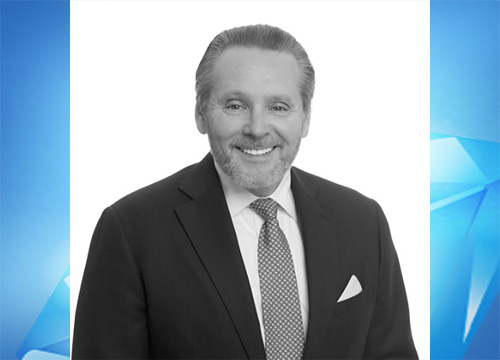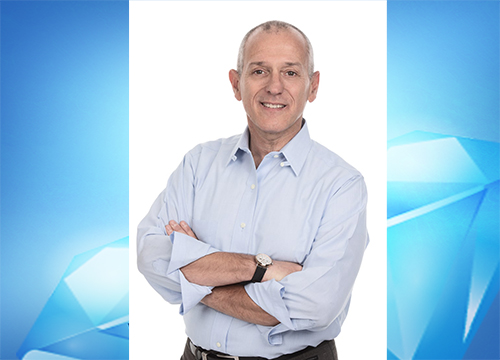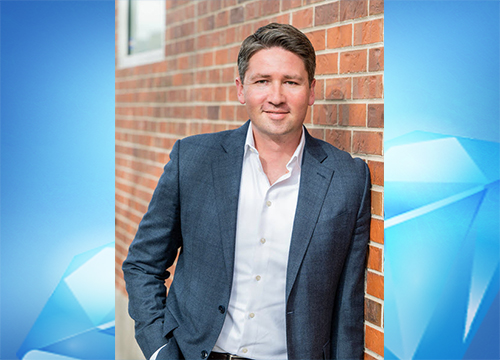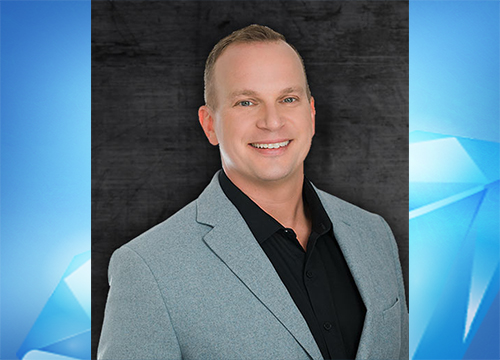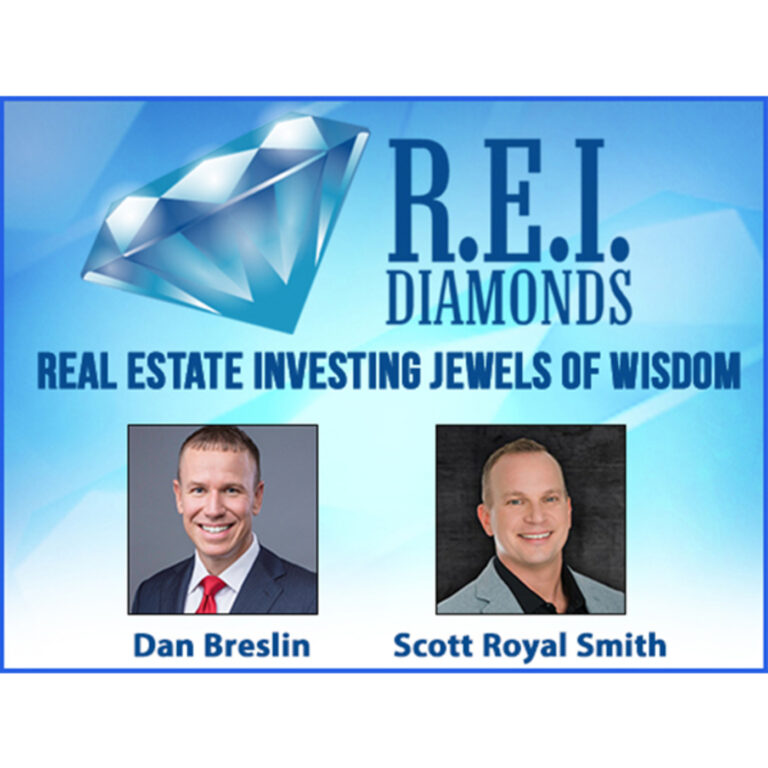Jarred Elmar of The Geneva Group has learned so much in his journey from investing in single-family home to building a diverse commercial real estate portfolio. He joins host Dan Breslin in this enlightening conversation about the most valuable lessons and takeaways from his career experiences. Together, they explore the importance of “buying right” and adhering to fundamental investment principles. They also discuss the current state of the multifamily market, noting the potential for distressed assets to emerge due to expiring loan terms and overbuilding in certain areas.
This Episode is Also Sponsored by the Lending Home. Lending Home Offers Reliable & Low Cost Fix & Flip Loans with Interest Rates as Low as 9.25%. Buy & Hold Loans Offered Even Lower. Get a FREE IPad when you Close Your First Deal by Registering Now at http://REILineOfCredit.com
Jarred Elmar & I Discuss Commercial Real Estate Investing:
- Transition From Residential To Commercial (00:01:21)
Jarred Elmar transitioned from residential to commercial real estate after an unsolicited offer for his single-family homes in 2007. This move allowed him to capitalize on the REO market and scale more efficiently with multifamily properties. - Lessons From First Multifamily Deal – “Buying Right” (00:04:05)
His first multifamily deal in Atlanta in 2011, purchased at $9,700 per door and sold for $18,000, taught him the critical importance of “buying right” at market lows, as this saved the deal despite numerous challenges. - Luck Vs. Skill & Delusional Optimism (00:06:50)
Jarred emphasizes that while luck plays a role, especially with good market timing, relying solely on momentum is dangerous. He highlights the need for “delusional optimism” to take risks, but warns against confusing luck with true skill. - Focusing On Primary Markets (00:12:52)
The Geneva Group’s strategy focuses on primary markets (e.g., Atlanta, Fort Lauderdale) because they are more resilient during economic downturns, being the last to fall and the first to recover. - Impending Multifamily Opportunities (00:15:38)
Jarred foresees significant opportunities in the multifamily market due to maturing loans, past overbuilding, and rising expenses, which will likely lead to many quality assets becoming available. - Fund Structure Vs. Individual Deal Capital Raises (00:18:03)
The Geneva Group raises capital for individual deals rather than through a fund. This avoids pressure to deploy capital, allowing for more selective and disciplined investments, thus safeguarding investor returns. - Identifying The Right Timing (00:24:21)
Jarred acknowledges that market timing can be tricky, as seen in a recent multifamily deal in Atlanta where they were “a little bit early” due to bank reluctance to purge bad loans and market oversupply. He anticipates rent increases in 9-12 months. - Information: The Most Critical Piece (00:27:20)
Beyond a low purchase price, superior information is paramount for successful commercial real estate deals. This includes thorough due diligence on municipal projects and identifying potential tenants to enhance value. - Phone Book And Gym Subscriptions (00:34:05)
Jarred’s early sales experience cold-calling from a phone book for gym memberships honed his salesmanship and proactive approach, a philosophy he applied to later real estate ventures. - A Review Of Jarred’s Numbers (00:43:06)
The Geneva Group’s portfolio boasts 1.5 million square feet and over 60 transactions in 13 years, with an average 33% annualized return for investors. This success is attributed to strict discipline and selectivity, with about four deals closed annually from numerous offers. - Jarred’s Book Recommendations And Contact Info (00:48:04)
Jarred recommends his book, “Built From Nothing,” and classics like “Think and Grow Rich.” He can be found via Google or his company website, Genevagp.com. - Getting The Right Motivation (00:50:20)
Jarred credits his mentor, Ben, an “industrial king,” whose unselfish guidance on his first industrial deal was a career catalyst. This act of kindness reinforced Jarred’s belief in the abundance that comes from giving back.
Relevant Episodes: (200+ Content Packed Interviews in Total)
- From House Hacking to $300 Million in Commercial Real Estate with Ivan Barratt
- REI Diamond Interview on Commercial & Residential Real Estate Loans with Joe Scorese
- Negotiating No Money Down Commercial Real Estate Deals with Peter Conti
- The Future of Commercial Real Estate Investing in Major Cities with James Nelson
Watch the episode here
Listen to the podcast here
Commercial Real Estate Investing With Jarred Elmar Of The Geneva Group
Mr. Jarred Elmar, welcome to the show. How are you doing?
I’m doing good. How are you doing?
I’m doing well. I’m recording from Chicago, and you are recording from?
I’m currently in Deerfield Beach, Florida, Fort Lauderdale, Florida.
Why don’t we start? I know you. I know many of the people on our newsletter, podcast readers know you as well from our mutual group, I guess, but why don’t you start with, like, who is The Geneva Group? What do you focus on, and then the abbreviated version of how you arrived at this moment in your business?
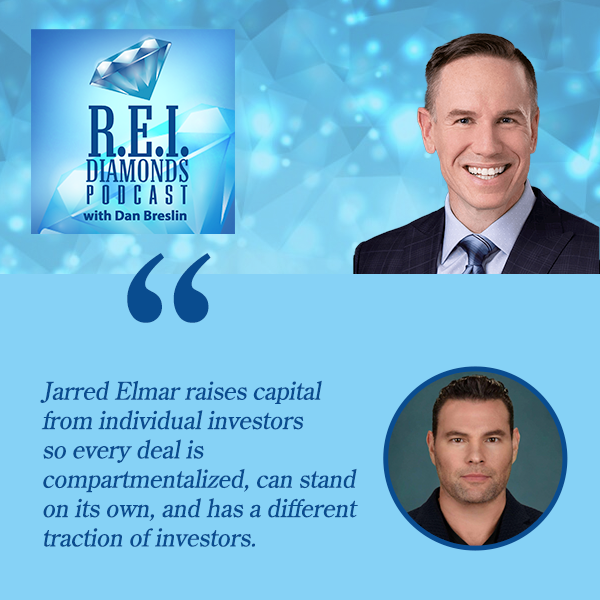
Transition From Residential To Commercial
You and many other listeners, we buy value-added commercial real estate. Our portfolio runs the gamut through between multifamily, office, retail, and industrial. I would say 60% of our portfolio is industrial in nature, specifically small bay industrial, that’s a bread and butter. I started in residential, like many people listening, bought houses on the courthouse steps at auctions and tax sales, and did that natural evolution from residential to commercial.
When I got solicited for an unsolicited offer to buy the bulk of my single-family homes, at the right time, which happened to be in 2007. Obviously, I had no idea what was coming up in 2008. The timing was good for me to be in a good position to take advantage of REOs that started flushing through the system in 2009. I got into multifamily, which is the easy progression or natural progression from residential single-family homes to multifamily. I got into an apartment complex.
From there, I wanted to divest and figure out where I could best scale a business, and started getting into retail, office, and industrial. Over the years, we built a well-balanced portfolio, and we still have that quandary, whether we want to get laser-focused on one product type or simply be opportunistic and continue to buy different product types and have that many more at-bats. That’s my 30,000-foot view of how we got started. Geneva Group was originally set out to buy single-family homes at the auctions.
I had a good system in place on bidding and pull entitle on 100-plus homes each month. It evolved. I realized that was me being a rogue investor, and it was going to be very difficult to scale a business with residential homes. There are a lot of inconsistencies, and you’re driving from one unit to another. It’s very different than when you consolidate to one place and have all kinds of consistent units, fixtures. It was easier than most people think to make that jump.
From single-family to multi-family, I guess that was in Atlanta Region 1. What was that around 2011, somewhere in there?
Lessons From First Multifamily Deal – “Buying Right”
Yeah, in 2011 we bought 156 units. Look, what gave me the confidence is that I had single-family homes scattered throughout Atlanta. I knew the good pockets from the bad pockets. I knew those markets. I knew that the apartment complex I bought was not in the best area. It was hood, but it was on the good side of hood. It wasn’t much crime. I only knew that because I had these houses all scattered. The efficiency that came along with buying an apartment complex and selling off the houses, the revenue jumped that much more, with half the work.
I know the answer because I read your book, but the price per door on the way in price per door on the way out.
We paid $9,700 a door in 2011. We sold it for $18,000 a door. You’ve heard this story many times. I told you many times. Everything could have went wrong in this deal went wrong. I had fires, I had a murder. I had cars going through a building. I had strong-arm robberies, all theft. Still, sixteen months later, we were able to turn this thing around and deliver a great return to our investors. That wasn’t because I’m so good. That was my first commercial deal. I only knew so much. I was learning on the job, that scale, but I bought it at the lowest point, arguably. This has been one of the greatest bull runs of real estate in history. We bought in 2011. Buying at the right price at the right time bailed me out of a bad deal because today, I would never buy that deal. If there was a deal for $10,000 a door in Atlanta, I’m not buying it. I won’t even look at it.
I’m sure that one is selling what would look like a screaming deal to today’s investors. It’s probably like $55,000 a door for that same.
That’s probably right. $55,000 to $60,000 a door. That sounds about right. The thing is, the guys who bought it from us were a bunch of, I met them, and again, a little chip on my shoulder. They seem like a bunch of Ivy Leaguers from Southern California. They had delusions of grandeur. They were coming in. They were a non-renewal for everybody.
They were going to upgrade the units and make this thing look like the Taj Mahal. They thought that they were going to get rents commensurate with the high caliber of the finishes that they were going to do. They put way too much money in that deal. They technically overpaid at that time, and they got stuck. They got stuck for years. They couldn’t get out without losing money. They had to wait.
Luck Vs. Skill & Delusional Optimism
They needed time in the market to bail them out, and that was still a good time in the market. I think they wound up selling in 2015. The next guy who bought it in 2015 had a triple homicide with three 15-year-olds over a video game. That guy’s still holding the deal. He cannot get out. There’s such a stigma about that deal. I’m very jaded when it comes to class C apartments. I think there are a lot of easier ways to make money in commercial real estate than buying Class C multifamily.
As you were talking, I was thinking about one of the themes. Have you ever read Thinking in Bets by Annie Duke?
Yes.
There’s a lot in there about luck and making good decisions, and having a good process. When you’re met with what I talk about with my team, a lot of luck in the market, things go tremendously well. Real estate is a tricky business, Jarred, because people can not have a good process. Make all the mistakes in the world, and get lucky and make a bunch of money.
In my opinion, that’s the most dangerous thing that could happen to someone early in their career because they think it’s just like they put too much allocation on their skill, and they think they’ve got the process mastered, and didn’t recognize the amount of luck that occurred there. All that said, if you’re not going to get in the game and you’re not going to put some risk on, you’re not going to put some money in a deal, you’re not going to pull the trigger and buy something, fix it up, flip it.
You’re not going to step up and do a commercial deal. You’re never going to put yourself in a position to get lucky. I wrote an article, which I sent out to the newsletter, I don’t know, 5 or 6 months ago, and the title was Delusional Optimism. My delusional optimism is that I want to know where I can get lucky a little bit in this deal if things go my way. I’m not underwriting it, and I need that optimism in order for things to make the deal pencil out. If I’m going to go in on a deal, I want there to be some small chance that we’re going to get lucky in the market.
I say this all the time. This business allows you to get very lucky. I didn’t necessarily do things right on the apartment deal, but I did the right thing. For me, in that moment, the right thing was not putting traditional debt on a deal that I didn’t know what I was getting into. I didn’t have experience with that scale. I didn’t put on any traditional debt. Thank God I didn’t because we wouldn’t have been able to cover debt service for the first 6, 7 months. It was not cash-flowing.
The good news is I was able to get lucky even though I didn’t know what the hell I was doing. I’ll be the first to say it. My skill set and my superpower at the time were being too ignorant to realize that I could lose on that deal. I agree with you. The last thing I want to be, Keith Cunningham talks about, you don’t want to be running enthusiastically in the wrong direction. That happens so much with people that we even know very closely, Dan.
You mentioned this earlier, the idea of getting lucky, and people don’t realize and it’s probably the most dangerous thing to happen is that somebody gets lucky. You need timing skills and balls in this business. If you have balls at the right time, you don’t necessarily need skills. That’s happened so many times with people that we know that just hit the market right.
They bought in tertiary markets, they bought deep value add deals. They bought crazy asset classes that nobody wants to touch, but they caught the right time in the market. That’s a momentum play. We’re fundamental and we’ll always be fundamental. We’re 20 miles from Miami. I would love to own. I was born and raised in Miami. Miami is the new New York and LA. The values are up there now with New York and LA.
I won’t buy because, in my opinion, I do believe there are some fundamentals, but Miami, more than, by and large is a momentum play and we’re just not momentum investors. We’ve seen that so many times with people that we know that they’re just going with the momentum, and that is a dangerous game. At some point, the music stops, and you’re left without the chair.
There’s a lot of money to be made in a momentum play if you catch it right, but the risk, I think, people are unaware of, maybe the level of risk they take on all the way through that entire momentum play. It’s a give and take. I entered the Atlanta market on a momentum play mindset. When you sold in 2007, those prices went down in some of those houses, like 60%, 70%?
People often just go with the momentum, which is a dangerous game. The music will stop at some point and you will be left without a chair.
Yes.
We came in 2016, we started buying houses, and you look at the public record, you see what they bought it for in 2011, 2010, 2009, etc. I’m like, “Man.” You see what they traded for even in ‘07, ‘06, ‘05. It’s like, these were brand new construction homes in 2005 that sold for whatever, $130,000, and they were bought for like $26,000 like five years later.
It’s an unbelievable time.
Yeah. But, but then on the flip side of that and coming back, I feel like the fundamentals have been pretty strong over the last 15 to 20 years in Atlanta in terms of population growth and a business-friendly environment.
Great content.
It’s the ACK structure, so we went in in 2016. When I first looked, it’s like, “All these prices are all over inflated. There’s no way this bubble could continue,” but it was a momentum play where we put our flag down and we’ve had a hell of a decade now I guess, since 2016 in the atlanta markets. It’s a little bit soft but I think that still enough fundamentals where if the price discounts calm maybe it’s 10% or 20% over the next 36 months of value drop and we’ve already seen 10% in some of the areas, but there’s a lot of areas there that simply are unwilling to move based on the desirability of the school districts and things of that nature.
Focusing On Primary Markets
If not, my style of investing personally to be a momentum player. One thing you touched on there, and I think I want to do a double click on is I’ve never seen you pitching a deal that’s not in a market where I’m like, “Holy shit.” The fundamentals, the growth, the dynamics of this Florida deal, or this Kennesaw deal, or the Tucker, Georgia deal. I know these markets, and they’re not like, “Wait, what’s that town I’ve never heard of?” I have to Google the population. Have you intentionally focused on more, I mean, these are primary markets?
In the beginning, we’re looking for value add deals. We took a flyer in maybe tertiary markets. In Florida, Lakeland, which has some decent demographics and has quite a bit of drivers for a small city with 100,000 people. Its tertiaries can be. We bought an office building. Thank God we sold that office building. We did well on it, but we sold it. The guy who bought it from us paid too much, and he cannot get out.
That is what happens when the market turns. The tertiary markets are not where you want to be when there’s a sense that the economy might slow down. Those are the markets that get hit the soonest and come back later. Whereas the major markets, the primary markets like Atlanta, even Fort Lauderdale, those markets, they’re the last to fall and they’re the first to come back. That’s just a fundamental principle that we have is that we want to stay focused on primary markets.
Now, we’re buying a deal in Asheville, North Carolina. Asheville historically is tertiary, but the drivers that I’m seeing in the small market and the supply constraints and the cost of construction in that area, because the topography is very different. Besides just the storms rolling through, and you’ve got the contractors that are crazy busy, we’re looking at industrial in that market. There’s a very low supply of industrial, quality industrial in that market. That’s a market that we see uptrend.
Nashville, Tennessee, was another one. In 2014, we got involved in Nashville. Nashville would not have been considered a primary market at that time. Now they’ve never seen a boom like they’ve seen before. We’re trying to figure out where the puck is landing before we pulled the trigger on it on the market. Again, it’s what keeps us out of the abyss. It helps me sleep at night knowing that if all else fails, I bought in a good market, I bought a quality asset, and all the fundamentals behind it made sense at the time of the purchase.
Impending Multifamily Opportunities
We’re buying right. If we’re buying with the idea that the market’s going to give us 10% rent growth every single year, that’s momentum-driven. That’s what’s happened, especially in multifamily. I don’t mean to keep picking on multifamily, but that’s exactly what’s happened and why the opportunities are starting to present themselves in that asset class to get the small guy all the way to the big guy. Everybody was buying based on momentum.
Everybody had floating debt. Everybody thought that good times would last and rents would continue to go up, and nobody thought expenses were going to blow out like they did. It is a perfect storm for a lot of these assets, quality assets to flush through the system and give all of us an at-back. The bigger institutions are going to pounce all over multifamily.
Everybody’s got dry powder for multifamily, the larger guy all down to the smaller guy, but we’re going to get our tregs. We’re going to get our 500, 800 units. You will too. A lot of your readers will also, because there’s going to be that much good inventory that’s going to be hitting the market in the next 6 to 12 months. It has to happen. There are way too many bad loans on the bank’s books, specifically with multifamily.
We’re here. It’s like the 0% interest era started in March or April or whatever it was of 2020. We’re at 2025, so like that five-year term that is so popular with many banks and many loans on the low end, and you got a 7, maybe a 10-year term. Those resets are happening now. That’s for the people who are disciplined enough to even get a more traditional structure.
With the boom over the last fifteen years in the apartment multifamily space, there’s so much exotic financing. It’s almost like the Ninja loans in single-family that happened in 2000 to 2006, where you didn’t have to put any money down. The level of creativity that these loan providers put out there in multifamily.
I found out about it afterwards, looking back, and I’m like, “Man, no wonder we had the bubble.” It was lower and lower, down payments and larger interest-only periods. Sometimes, construction money included, no payments. The level of lending that occurred in multifamily, yeah, it has to come to roost now. That’s why I think what I saw was like 10% to 20% value gone since 2022, dollar per dollar.
Fund Structure Vs. Individual Deal Capital Raises
Most of our industry is a zero-sum game. The good news with that is it’s like, I’m in South Florida, so I deal with hurricanes every once in a while. We’ve got a whole week to prepare for a possible storm. There’s no reason to have lost lives in a hurricane because you have so much time to prepare for it. There was so much time to prepare for the idea that rates are not going to stay at 3%, 3.5%. Yet everybody sat and just watched the storm come at them. I don’t want to say nobody, but even the most seasoned and sophisticated higher-end institutions floated debt to meet some degree of yield for their investors.
They were buying at 3 caps, 3.5 caps, and they were borrowing at 3.5 floating debt, and all of a sudden, their three and a half is now 6% debt. Their loan is coming due, and expenses are higher, and rents flatten out. What do you think’s going to happen? These are very smart investors. They needed to deploy capital. That’s the one reason not to shift gears, but it’s why we raise our money, our capital, from our investors, on an individual basis.
Every deal is compartmentalized with a different tranche of investors, and every deal has to stand on their own. There’s no co-mingling of funds and rents. It’s all separate. With a fund, you’re raising the money first, and you’re going to find the deal second. That means you’ve got a gun to your head to deploy capital. We just don’t want to be in that position because a lot of the guys that are in trouble at the moment and they’re trying to rebalance their portfolio by selling off deals that might’ve had all the equity wiped out of it to support their quality deals that are still above water. We just don’t want to be a statistic. We don’t want to be in that position. I’ve seen it way too many times.
I think one of the things, at least I’ve observed from the outside, is, and maybe this is part of the progression of your career, maybe this is intentional, but it’s the size of each deal. The deals that you’re putting together are not a $5.5 million, 97-unit property that you’re raising a million bucks on. Compare that contrast it with somebody who goes out, raises a $10 million fund, and now they’re out there searching for whatever 4 to 7 of them, depending on how exotic their financing stack is.
Your last deal was somewhere in the $17 million to $18 million range, and I’ve seen a few of them in the past that were in that range. A cap raises a five to $8 million on each individual deal. I feel like it’s a safer, more strategic method, not just saying, “I fund each deal individually,” but combining that with the size of the deal. I mean, you’re right up there, if I had to guess, competing with what would have been or what is out there in the market, the institutional REIT buyers are potentially other buyers for the same deal that you’re picking up.
It does happen. We try to stay under the institutional radar. We’re usually buying under 25 million. A lot of these private equity or even family offices don’t want to deploy less than $5 million to $10 million in equity. When we’re buying a deal, we’ll need $3 million to $5 million. That’s definitely the smaller to mid-level guys chasing those deals. We’re not going head-to-head with institutions that have such low cost of capital. We stay right there.
You only have a finite amount of capital. Although every real estate deal is not a bullseye, it has to be on the board.
The stakes are going up. The deals are getting more valuable, especially in the markets that we’re shopping in. That’s really been our model as to find the value add deals. We’ve to roll up our sleeves. We’re buying the deal at pretty much the worst scenario that it’s been in in twenty years. Whereas, a lot of this multifamily stuff that was purchased was priced to perfection. Everything was great. The proforma was where we thought rent growth was going to go. Everything looked great.
You bought it at the peak of where it could be. It only had one place to go, which was down. That happens with retail, where the leases are ten years long, and you’re clipping a coupon, you’re buying the center at its most valuable moment. Now, you can argue that certain market rents are just going to keep going up.
Again, most of your readers, including myself, we only have a finite amount of capital. Every deal has to be, maybe not a bullseye, but it’s got to be on the board. We cannot get it wrong. We’re only as good as our last deal. If I have investors that aren’t making returns that they’ve been used to, they’re going to forget me very quickly. We’re super selective, which is why we don’t need a fund at this time.
Now, if we wind up having one of those RTC moments where there are deals that come in left and right at $0.20 on a dollar, then we’ll reevaluate. Maybe we even go institutional and take a thinner promote. For now, there’s just not that robust value add inventory out there yet. I think it’s coming. Our pipeline is getting more full, but I don’t think it’s going to be enough for us to warrant doing a fund.
I think you’re right. It’s like, are they going to make the same mistake as RTC in the ‘80s, ‘90s? Probably not. The government looks back and everyone who was involved and probably wishes that it would have been handled differently. 2007, 20087, 2009, 2010, 2011, 2012, I don’t think it happened at the level of the RTC.
Looking back at the actual numbers, yeah, there were some deals that came through, but it was not like a wholesale liquidation like occurred when the savings and loan crisis happened during the RTC. Resolution Trust Corporation, if anyone wants to Google that. Now this time around, it was like all the loans got frozen during COVID. Who would have saw that coming?
Now banking regulations are a little bit different that aren’t forcing the asset sale quite as quickly as they may have had to do in the past. We have this procrastination technique, which maybe stop the flood, but we do see some periodic letting of the floodwaters out so the dam doesn’t break over time. I think that periodic letting out of the deals is where we might have our opportunity to pick off.
Identifying The Right Timing
I agree. I’m sure you saw the big short. You read the book. One of the things that they talk about is the timing of when the rating agencies decided to lower the ratings on the bonds. They were buying all the credit default swaps, and the rating agencies weren’t reducing the rating on the bonds. Like, “What the hell’s going on?” Everything’s turned into crap, but it’s still a triple A rating. This is what’s happening right now with multifamily.
We bought a 240-unit deal in Atlanta, and it was a situational deal. The loan was coming due, same with everything we talked about, floating debt. These guys got over their skis, and they sold it at a $6.5 million loss to what they bought it for two years prior. All their equity was wiped out. We bought the deal last year, and our basis is right. I’m confident that the market’s right, but it has been a very heavy lift. It’s been very tough to cash flow, and it’s because we’re a little bit early. We wouldn’t have been early if the market, if the land loans, if the bank started purging a lot of that multifamily. That hasn’t happened yet.
Are you a little bit early on that because maybe the rental market softened a bit too? Is it just like a little bit of a tougher push to try to get more rents up? Like, clearly, any deal we look at in commercial space, if you can raise the rents, that’s one path to making the deal better.
The main issue, and I know Atlanta. Atlanta was one of the major metros in the country that overbuilt. They tend to do that all the time. South Florida does it too. They overbuilt, and there are so many new units coming online, new products coming online. What happens is if we have a 1970s vintage apartment deal and a good market, a merchant builder down the street is building brand new, and they just have to lease up.
They got to get out from under the property. They’re carrying debt. The construction costs were higher than they anticipated in the beginning. The timing they were delayed because of nuances in the market. Now, all of a sudden, they just want to get out from under it, make their profit, and move on to the next deal. They’re renting those one bedrooms at the same rate that we’re renting our one bedrooms for.
Until those units and all those merchant builders, those units get absorbed, we’re not going to see rent increases in Atlanta. Now, the good news is there’s been a year and a half lag now on anything coming out of the ground in Atlanta. Once these units get absorbed, we’re now going to have this lag in construction. At that time, you’re going to see, I think, a major spike in rental growth in the Atlanta market. I think we’re probably about nine months to a year away from starting to see upticks in rent. Rent will remain flattened now.
Information: The Most Critical Piece
What would you say is the most critical piece of making a successful commercial real estate deal?
What was the first one?
Driver piece, consideration. I mean, if there was one thing, maybe that’s a different answer on the front end when you’re buying it, it’s buying right, and that simple. Maybe a better way to point this question would be you own it now. What is the thing that the novice is missing, or doesn’t acknowledge, or put enough emphasis on once they own that property?
I could address both sides. Obviously, everybody’s going to say basis. You make your money on the buy. That’s our cliche. The reality is we make the money on the information, and the information goes beyond just the basis, which is why we’re so diligent in our process of evaluating a deal through tenant interviews, dissecting, you going to the CRA, going to the municipality to figure out what projects are coming up.
We’ve had deals where we were looking at it, and because of our due diligence, we realized that this is the best the property is ever going to get because a flyover is being built in front of the shopping center we were looking at. Nobody was about to divulge that to us. Forget about the six years of construction that’s about to occur in front of the center.
Once the flyover goes in, the traffic patterns change. That’s all the bits and pieces of information that determine whether you go in a deal or not go in a deal. Another one is a deal in Fort Lauderdale that we had. We knew we were buying it at the right price per foot, but the minute we had the tenant in tow during our due diligence, it was a home run.
Even if we could have paid a million dollars more for that property because we had the tenant in tow. If you’re lucky enough to have that tenant to fill any vacant space, you can pay more than the average guy, and you’ll still make plenty of money on it because that is the secret. That’s the ultimate arbitrage play when you have a tenant. It really is the information more than just the buy on the basis of the nice.
What about after you own it? Maybe that is having the tenant in place. Maybe there’s a level of tenacity in getting tenants that one entrepreneurial investor like yourself might have, whereas the capital preservation guy sitting in Vail, Colorado, skiing all day. Maybe he doesn’t have that tenacity. How would you go with the second half there?
You took the words out on that. Marketing is so important. Enhancing the curb appeal, very important, but the marketing of it. We all, as guys that can only do so much in the course of a day, rely
on third parties, third party management, third party leasing brokers. A lot of times, they think the buck stops there. Those that just allow the leasing brokers to run it and with the expectation that in a year, 2 years, 3 years, the leasing broker is going to turn the deal around, is just short-sighted. That’s the type of people that we want to buy from.
Do not rely heavily on third parties when closing real estate deals. Use them as a tool, not as the end.
We’re not going to be that guy. We’re going to be breathing over the leasing broker’s shoulder. We’ve got a perfect example. We have the apartment deal, and we have third-party management, and they’re ultimately our third-party leasing. We have calls every single week with them. We’ve had the property for a year, and we have the biggest sign on the main road. It’s the marquee sign on the road. You can see that there’s an apartment complex as you drive by, but something so simple like having it under new ownership, leasing specials, flags, and the little men that blow all around.
Those things attract attention on if you drive up and down the street all the time, you’re desensitized to a large sign that says, “The apartment complex is here.” When you start seeing yellow signs and flags and things that attract attention, even if you’re not looking for an apartment unit, that catches your eye. You recognize that. That’s something that if we didn’t have these calls and ask those probing questions and go on site on a regular basis to figure out where we can enhance value and enhance marketing, they would have never done it.
They’re a higher gun. They don’t have ownership. They’re not looking at it with the same eyes as an owner. Especially if an owner is raising capital, it is their fiduciary responsibility to breathe over the shoulder of their third parties. That’s the main way that we force value is that we don’t rely so heavily on third parties. We’ll use them, but we’re using them as a tool, not as the end-all be-all, turning this property around.
It’s interesting that you say that putting the flags up in the way the guy in the balloons vacancy is available out there by the apartment sign. I’m in Chicago, and a lot of the buildings when I walk the dog around the city here have like a static sign studios 1 bed, 2 bed, and have the phone number of the manager.
I think it’s required by law for them to put the property manager’s phone number on the outside of the building. That’s why they do it. I’m not looking for an apartment myself, but I always assume that all those units are full. If I drove by your place in Tucker, Georgia, I think it is, and I just see like, the marquee apartments, and there’s a phone number, I’m like, “Clearly, they’re all filled up.”
Whereas if you have like, vacant units ready to move or something like that, and you’re like looking from a timing thing like, “Dude, I’m a lazy consumer. I don’t want to waste my time dialing nine numbers on the phone, going through some prompts on to get to the person, leaving a voicemail, then having to take this person’s call back later just to find out if they have a vacant unit or not.” It seems obvious, I guess, but maybe it’s just not to everyone out there in the market.
The best part about commercial is that a lot of these key principles translate to different product types. Retail is the same thing. When I first bought my first retail center, I went grassroots prospecting. I started knocking on doors at other retail centers in the area and tried to sell them on the idea. I was essentially poaching them from other buildings. “Our access is better. Our parking ratios are better. Our visibility is better. We just have a nicer-looking building. You may want to consider moving over.”
Those are the things that your traditional leasing broker is not going to do. That’s the hard stuff. Hopefully, that leasing broker has a team of young guys who are hustlers and they’re knocking on doors and driving potential leads. One thing is for sure. I know we’re doing it. We personally are doing that. We’re not relying on just the leasing brokers to have that team in place.
Phone Book And Gym Subscriptions
I feel like I found the foundation of that idea in your life when I read your book, Built From Nothing. I sent it out to the newsletter a few weeks ago. It’s on Audible. Jarred reads it himself. It’s enjoyable. It’s not a how-to commercial real estate, it’s a little bit more of the story. I get a lot more from biographies of successful people than I get from how-to books, typically, because it elaborates on the decisions in the context of this person as they went from zero to something a lot higher than zero a lot of times.
You can find that in Steve Jobs’ book, Elon Musk, and the whole list, but yours is also that way. Yours is in a space that most of us listening to the REI Diamond show are interested in, real estate. I’m to let you tell the story that involves a phone book and Jim’s subscriptions early on in your career. Would you mind giving us that one?
Looking back on it, it’s funny when you’re young, the younger you are, the more you absorb. I remember my grandfather taught me how to memorize all the presidents in order when I was nine years old. I haven’t said it in years, and I can still recite every single president’s first name and last name because it’s so ingrained in my brain when my brain was being developed. Just the same, when I got into the job force, when I was just trying to find my bearings and figure out how I’m going to support myself, because I’d been on my own since I was seventeen.
I was trying to figure out a way to be a little bit different in whatever I was doing. I got hired by Bally Total Fitness as a membership sales. I did it because I was going to get a free membership, and I was into working out. That appealed to me. The guys that were smooth and were seasoned and were aggressive, they were getting all the leads, and they were closing the deals.
I was trying to figure out a way not to just rely on random walk-ins, and I’m like, “I don’t think anybody’s just cold called out of the phone book.” I’ve pulled up all the names under a specific zip code close by the gym. I just said, “I got approval to get a week’s free pass for anybody that I bring in.” I would say, “So-and-so and membership sales at Bally’s. I want to invite you and your significant other end to work out for a week, get to know the gym. No pressure, no catch. Just come in and I’ll hand you the pass. This way, I just get to meet you.”
You would be shocked how many people said, “We have a meeting to come in. We’ll come in.” I’m bringing them in and then having the volume of people that I got in gave me so many times to recite my spiel, the pitch, on how to actually convert that to an actual gym sale. Over 3 or 4 months of doing that, I started to get pretty good at closing on the sales. In the first three months, it wasn’t that difficult to bring people in that were smooth and articulate and knew how to close on a gym membership. We just split the commissions.
I’ll bring in the lead, you close it, and I’ll watch, I’ll observe. That’s something my grandfather taught me when I was very young. Find something you love to do and then go work for somebody that’s doing it for free and learn everything you can because that is your college education. Not paying for your college education, maybe most people are looking at saying, “I don’t want to work for free.”
You’re getting an education for free. You’re not having to pay. They might not be paying you, but you’re not paying them. You’re learning so much. That helped me take that philosophy into the gym and bring guys in that can close the deals, so I can observe and watch a closer go to work. That helped me throughout the process of initially starting to cold call my own building owners, finding value add deals.
I started calling the building owners and find the motivation and try to make a deal. We started buying deals that way. Finally, as it evolves, now I train our guys, and we have an internship program where we train our interns on how to pound the phones, how to manage the letter campaign,s and have a whole rebuttal script lined up. It was this progression that all started with selling memberships at a gym for $60 a shot.
How old were you? Was that like 17, 18 when you were doing that?
Yeah, I was 18.
This might be quite for me one of the most valuable pieces of the book. There’s a lot of value in there other than this, but the story about the president at nine years old illustrates how powerful laying down the foundation for someone while they’re really young can be. Trying to teach yourself cold call at 45, 50, 60 years old. You can do it, and you probably have more stick-to-it-iveness and confidence than you would at 18 years old, but the benefit of laying down that brain map at 9 or 18 years old.
I’m doing this with my daughter. She just graduated from Temple Criminal Justice, and in her whole job role she’s handling some lead management stuff. I’m like, “You’re cold calling, like get into the mojo dialer and you’re just going to call. This is your number of calls you have to make per week, and like figure out how to like test the script and say that.” “I don’t know how long we’re going to do that for, but one of the reasons I’m doing it is to get that resilience built early.”
Her life is obviously a lot different than my life when I was 22 years old, just with the resources that are available in our household compared to what we had. When I was at that age, I’m really trying to do something like you were hungry at that age. I was hungry at that age. Those are the things we would do out of hunger, and I’m trying to make sure I incentivize her to do that difficult work, like raise your hand in the audience.
If you just love cold calling, there are probably two people out of the 10,000 or so who are going to listen to it, who are interested in doing that and enjoy it. Most people don’t. I think the younger you are in the earlier you could start. I feel like it’s just reps in the gym. You and I both like enjoy weight training to this day.
The ability to adapt, be open-minded, and have strong opinions are key aspects in business and in life.
You have to do them when you’re weak, and you have to get better at them, and you have to track them, and you have to have this evolution. You have to keep on doing that. To me, it’s like she’s training for this triathlon of a lifelong need to be resilient and persistent and handle rejection. I cannot think of any better way than sitting her down on the mojo dialer, making 6, 7, 800 calls a week to do that.
My daughter inherited that salesmanship and that high EQ from me. She’s using it for evil as a teenage girl would. She tends to manipulate a little bit, but all the things, all the traits that I see in her are going to serve her very well later in life. She’ll start using it for good. I will put emotional intelligence over standard academia all day, every day.
There’s just no comparison to be truly observant, to be truly aware and intuitive on human emotions. There’s a part of my book that we talk about, essentially the born loser theory. I know it’s mean to talk like that, but there’s a reason why there’s a dark cloud that’s over certain people’s heads their entire life. It comes down to how they work with different personalities.
If you’re one of those people that have are true to your principles and you’re opinionated and you’re not willing to listen, especially with this political turmoil, how many people, how many friends did you lose because you don’t necessarily agree with their stance in politics? The ability to adapt and to be open-minded, and to have strong opinions loosely held, is key in business and in life. You go around thinking everybody’s wrong and you’re right. You’re not going to get the opportunities that those that are willing to be open-minded get. Unfortunately, in many ways, that means having to bend a little bit on your principles.
A Review Of Jarred’s Numbers
A 100%. I know we’re getting to the top of our time here. Can we take a moment to do a little bit of, if you’re willing to, some of the results you’ve gotten, maybe for investors, a little bit of a resume of the deal sheet numbers that might be relevant to someone if they were thinking about picking the phone up and giving you a call after they hear this episode.
I appreciate it, Dan. We currently have 1.5 million square feet in our portfolio. We’ve sold quite a bit over the last couple of years. We’ve done just over 60 transactions over 13 years. I’m proud to say that over those 13 years and 60 transactions, we’ve netted our investors approximately a 33% annualized return over that time span on average. Again, I mentioned this early in the show, we’ve been the beneficiary of a hell of a real estate bull run.
I don’t anticipate being able to deliver those returns over the next 13 years. We’ve never projected higher than eighteen annualized on any deal that we’ve done. Here we are, average 33. We’ve never gone below a twelve percent annualized return on any one deal. I don’t say that to impress anybody. I say that to make sure it’s understood. It’s not that we’re so great. It’s that we’re so disciplined. It’s that we’re so selective. We’re not just going to buy a deal because we have capital to deploy. It has to check all the boxes.
We offer on 2 to 3 deals a week. We go under contract about 6 to 7 times a year, and we close on about four deals a year. That’s a lot of volume, and it’s a complete numbers game, and it shows how much of a sniper we really are. We’re not just going to buy a deal to buy a deal because we have some costs. We have investors clamoring. It happens a lot, but we’re not going to deviate from our buying box. That’s what delivers the type of returns.
The investors are clamoring for those type of returns, not for you to do some horseshit deal just to do the deal.
That’s right. I said this before, we’re only as good as our last deal. If we start delivering lackluster returns, we’re losing our investor base. I had a chapter, your tenants and your investors or your kings and your queens, and you need to treat them like that. Their money is more important than your money. Thank God we had the crash because though I sold the houses at the right time, I bought condos at the wrong time.
As you said, the values on those condo units in South Florida dropped 80%. I had to float those deals for eight years before I then still had to come to the closing table with money to get out from under them. Thank God that all happened prior to me ever syndicating a deal or bringing in an investor, because it made me much more astute. It made me much more disciplined.
I hear your conservative underwriting, and that’s like my role. I don’t know. We’ve done like 105 deals this year, and we did 259 last year, and we have about 170 of them in process as we speak.
Crazy numbers.
Thank you. Blessed to have a strong team, good executive bench here across the company, but where I was going is like, I’m the conservative underwriting guy and people our age, yours and mine, Jarred, who actually were in the business through that period of time, 8, 9, 10, 11, 6 even longer than that. Who knows what it’s hitting for.
A lot of the people who are younger than that, that’s one of my first underwriting questions. It’s like, “When did you start?” I’m like, “2015.” I’m like, “No, there’s no way I’m going to put a in your hands.” You don’t know what’s about to hit the fan right now. Anything that you’ve underwritten may have nothing but delusional optimism in it.
I digress, and maybe there’s going to be a crop of young guys eventually who I’ll be handing to. I guess I handed the checks, but that guy was actually in there through that period of time and started at like twenty-something years old. There’s a push-pull. There’s a conservative underwriting, and then sometimes the partners have to convince me of the value, if you will. A lot of the deals turn out a lot better than I would think about on the front end, but I’ll attribute that to luck.
I’ll say, “That’s what the delusional optimism was in the back of my mind, but I’m not pricing that in day one.” I want nothing more than to eat my foot. When I say it’s going to sell for 500, and it sells for 600. I love the taste of my foot in my mouth when that happens. I would not, and it’s happened before to where I think it’s 6 and then sells for 5, and it’s like, “What did we do?” That’s a terrible situation to be in.
A 100%. He’s going over deliver.
Jarred’s Book Recommendations And Contact Info
Book recommendations here.
I’ve got to be a little biased. Built From Nothing is my book, available on Amazon, not on Audible. Look, the best books I have ever read and continue to read over and over again. Think and Grow Rich is your number one Bible. Napoleon Hill. Is it the 46 Laws of Power?
Yeah, I think it is 48, yeah.
The 48 Laws of Power. Amazing book. Amazing book. It’s a long audible. I probably listened to that about ten times. It’s been so good. I always go back to it. Lately, maybe it’s a little bit of marketing, and I cannot deny our president being a good marketer. I’m reading The Art of the Deal, probably for the fifth time. The first time I read was twelve years old. My grandfather stuck it in my hand.
To try and get a sense of with the negotiations with the tariffs, all kinds of geopolitical issues, how his mind is thinking. It’s pretty much documented what he does, and he’s very consistent. Regardless of political leanings, you don’t have to guess what he’s doing. It’s very consistent. Now, whether it’s the right decision, I guess to be determined, we’ll post game it in a year from now, but there’s no guesswork. I know we know exactly what he’s doing. It’s well documented. He’s done his entire career.
Spend some time doing charity. It will come back to you six-fold.
Before I ask you my final question here, I’ll give you a chance to plug some contact information if you want people to go to a website, something like that.
Our website is GenevaGP.com. I’m pretty easy to find. I’m the only Jarred Elmar on the entire planet. It’s pretty easy to Google and find our company name and be able to get access to the book in any other way that we can help your listener.
Jarred is spelled with two R’s, Jarred.
I always say my mom misspelled it. Everybody else spells it right, but not me.
Getting The Right Motivation
That’ll help limit those Google results you’re talking about. My final question, Jarred, what is the kindest thing that anyone has ever done for you?
My now partner in many of our best deals. He was my mentor. His name is Ben. When he barely knew me. He met me through a charity event, and he didn’t know who I was. He knew my name. I called him. I got his number from somebody else, and he’s the industrial king in South Florida. I had an industrial deal. My first industrial deal, I think it was 2012. I was buying it for $29 a foot, a major thoroughfare in Pompano Beach, Florida.
I knew it was a great price. I just didn’t know what I had. I didn’t know what to do. I called him and I said, “Listen, I have this deal, I think it’s a good deal, but I don’t know what I’m doing on this.” He says, “I’ll be there in an hour.” He barely knew who I was, he’s running his own empire, and he came to meet me on site, and he looked at it. He says, “How much are you paying for this?” He walked through some of the units.
Said, “You need to close your eyes and close on this deal because if you don’t, I will. This is a steal, and you’ll figure it out once you close.” It was my largest deal at the time. That was the nicest thing anybody could have done for me to drop everything they’re doing for somebody he barely knows and push me in and motivate me and give me some degree of confidence from a seasoned guy to say, “Go ahead and close this. You’re going to be okay.”
You had it under contract at the time?
I had it under contract. Yep. That led to a compounding effect with confidence in doing the next deal. He was a catalyst to the career.
Do you think Ben had done that for dozens, hundreds of people before that, or do you think it was unique? Why do you think he chose to do that in that example?
I’m lucky enough where the guy is so charitably inclined and he does want to help. I don’t know how many times he’s done quite that exactly, but he’s one of the most philanthropic guys I know. I do believe that he feels that the opportunities come to him organically when he puts it out there. That’s why I’m so big into charity. I do believe that it comes back to you 5, 6 fold. It doesn’t have to be altruistic. It’s a lot of self-serving reasons why I donate to organizations. At the end of the day, you’re still helping somebody regardless of what your motives were. I continue to do it, and it’s amazing how it all comes back. It’s an abundance.
I’d probably highlight on there with Ben, there’s some level of like having the interests aligned that’s important for anyone reading, they’re thinking of who you’re going to call. I don’t know that the cold call to the guy without having a deal and asking him a bunch of questions that are not even relevant about theoretical deals that may come down the pike. I don’t think that’s a great use of your one shot at the apple.
Anytime you can find a way to have aligned interests with someone who’s going to partner or give you insight. I think that’s important. The guy who has a bunch of money may be the partner at some point down the line. Maybe you need that person, and you’re not Jarred, and you couldn’t close it yourself for $29. The guy’s thinking, “There might be some chance that the kid needs a way to get it to the settlement.”
Having a line of interest is the most powerful way to cement long-term partnerships. Anytime the interests get out of whack, it starts to break down, it starts to fall apart. I think Ben was like, “The kid has the deal under contract,” probably knows the building by memory or something like that. That was a shining, you know, those parking lot lights that like shoot up into the dark, you see them for miles when they used to have the grand openings back in the day. It’s like a beacon.
It’s like the bat symbol. “The guy has the deal locked up.” That’s way further down the field and totally will kick the door open. How that’s relevant to the reader, I’m not sure. Whoever’s reading will have to figure out like, “How do I get the deal started and bring something of value to the table for me, Jarred? I had no money. I had no skills.” I was like, “I’m to be the number one source of real estate deals.
No one in the fucking whole world is going to bring more deals to the table than Dan Breslin.” The guys with the money who are fixing and flipping, and I want to land and all that. They’re all going to take my call because I have a deal to talk about. I noticed they didn’t like to take my call when I didn’t have a deal to talk about. “I had a deal to talk about.” It was like, drop everything, hold the presses, we’re on the phone within ten minutes.
Listen, what the reader can take away from this is, I’m sure you get it. I get probably 4 to 5 calls a day from platforms that you and I know very well. A lot of them are very “Let me pick your brain.” I hate that term. Let me pick your brain, and they don’t have anything tangible. They just want to pump you for information, and I want to help people. I really do. Please don’t waste my time.
Let me know what your ideas are. Let me know what your solutions are. We can evaluate which one makes the most sense, but don’t just throw your monkey on my back and want me to come up with a solution for you. I have no vested interest whatsoever because I barely know you. You’re not inviting me into the deal.
Have it under contract, have a game plan of what you intend on doing, and then go to somebody’s season and say, “Here’s what I intend on doing, what do you think?” It’s going to take less of my time, and you’re going to get a seasoned investor to give you their point of view with all the facts. That’s the biggest thing. Just, I guess, make sure you have all the facts before you present it to somebody that you’re looking for advice from.
Yeah, 100%. Jarred, we’ve reached the end of our time. I really appreciate you carving out. I got like three pages of notes here, and I enjoyed the conversation. I appreciate you coming on the show.
You, too, Dan. I appreciate you having me.
Important Links
- Jarred Elmar on LinkedIn
- Jarred Elmar on YouTube
- Geneva Group
- The Geneva Group on LinkedIn
- The Geneva Group on Facebook
- The Geneva Group on X
- The Geneva Group on Instagram
- Thinking in Bets
- Built From Nothing
- The Art of the Deal
Relevant Episodes: (200+ Content Packed Interviews in Total)
- From House Hacking to $300 Million in Commercial Real Estate with Ivan Barratt
- REI Diamond Interview on Commercial & Residential Real Estate Loans with Joe Scorese
- Negotiating No Money Down Commercial Real Estate Deals with Peter Conti
- The Future of Commercial Real Estate Investing in Major Cities with James Nelson
About Jarred Elmar
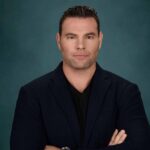 Jarred Elmar is the Managing Partner of The Geneva Group.
Jarred Elmar is the Managing Partner of The Geneva Group.
Jarred E. Elmar is the Managing Partner of The Geneva Group. Since 1999 Mr. Elmar and his partners have been acquiring and managing residential and commercial real estate for their own portfolio with over 1.8 million square feet of retail, multi-family, industrial and residential acquisitions to date. The Geneva Group focuses primarily on neighborhood retail centers, light industrial and small bay warehouse complexes, office buildings and multi-family apartment complexes.
Mr. Elmar began his real estate career in the Atlanta Georgia Metro area, where he began purchasing single family homes on the courthouse steps right after high school. After acquiring dozens of rental homes, he sold the residential portfolio and began investing in apartment communities in 2010 while at the same time acquiring value-add office buildings and retail shopping centers. Until recently, Mr. Elmar hosted a financial radio show on WSBR radio 5 days a week for 7 years strong. He has been featured on several radio talk shows to discuss how money works rather than how one particular investment or asset class may perform. His financial aptitude has allowed him to creatively purchase assets, buy out existing leases from national credit tenants and find higher and better uses to reposition blighted properties.
Mr. Elmar is a self-educated entrepreneur. He has created an impressive real estate portfolio.

